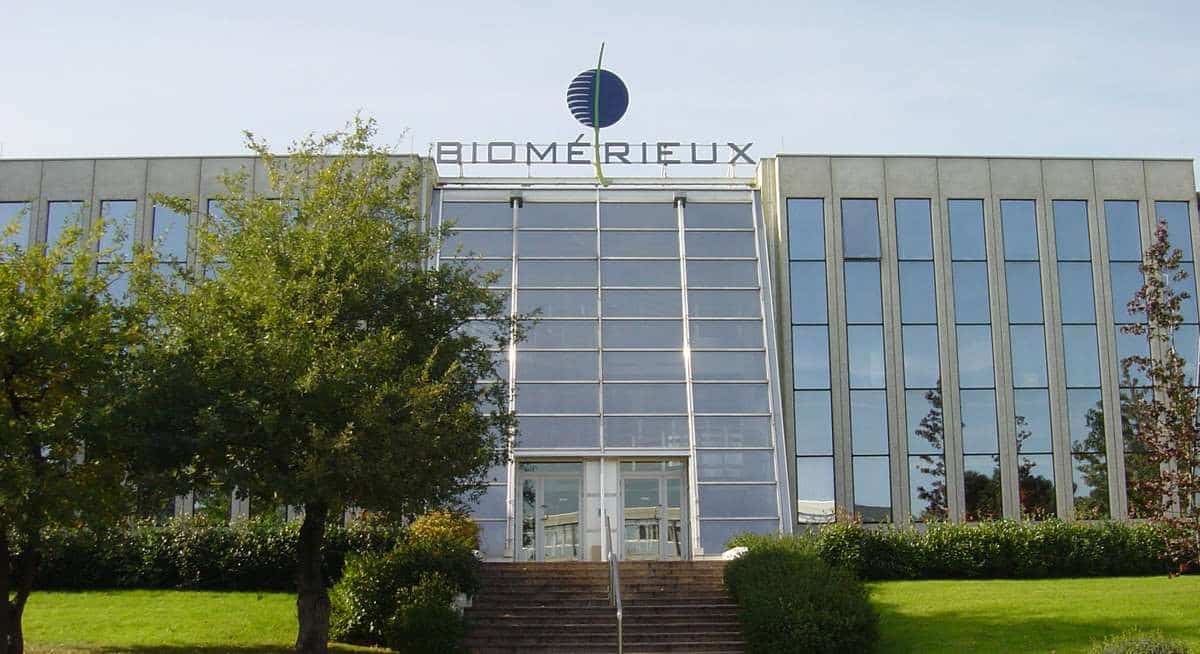
Improving the energy efficiency of bioMérieux’s international distribution center, as part of the expansion of the facilities
Contact Afep Improving the energy efficiency of bioMérieux’s international distribution center, as part of the expansion of

Reduce the CO2 emissions of a daily shuttle transporting refrigerated finished products between two sites (40 km/day, half urban / half suburban).
bioMérieux wishes to minimize its carbon footprint over a short, but daily route, using little-tested technologies, and thus help the development of such innovations by giving them an opportunity (pioneering role). The innovative nature of this project is based on a combined action aimed at reducing the CO2 emissions of a tractor with refrigerated trailer.
In addition, through this project, bioMérieux wishes to support the efforts of its service provider (TFMO) in reducing the carbon footprint of its vehicle fleet, in particular by accepting risk management at its own level (uninterrupted transportation and temperature hold of finished products).
To reduce its carbon footprint on such a daily route, the following is planned:
The tractor and trailer will be operated by TFMO, but the vehicle is intended for shuttle routes dedicated exclusively to bioMérieux activities.
As part of this project, the company must face several technical challenges:
The power consumption and energy efficiency of the refrigerated trailer, whose doors are opened frequently during loading or unloading.
on which the project has a significant impact
Scope 3 – Replacing diesel-powered means of transportation with electrically powered vehicles
Savings from tractor (hybrid solution): – 8.2 tCO2eq/yr
Savings from trailer: – 3.4 tCO2eq/yrRoute characteristics: 40 km/day, 50% urban, 50% suburban.
An all-diesel tractor emits 106 tCO2/year on this route. The use of a hybrid solution makes it possible to reduce diesel consumption (about 11 l/day) and save nearly 8.2 tCO2eq/year.
Cold production using an electric motor also allows a reduction in diesel consumption (about 5 l/day) amounting to nearly 3.4 tCO2eq/year.
The emissions factor of the diesel used is taken to be equal to 3.25 kgCO2eq/l.
> 500 k€
Launch of study in 2019. Commissioning of shuttle scheduled for November 2021.
Implementation of a shuttle between the bioMérieux sites of Marcy-l’Etoile (69) and Craponne (69).
The project contributes to the following SDGs:
Replication potential of the project:
Reproducibility conditions of the project:
Conditions for the success of the project:
Guaranteed availability and high reliability, because the daily shuttle is critical to the company’s business activities (uninterrupted transportation + temperature hold of finished products)
A partnership with TFMO, the carrier in charge of the shuttle, was established.
At a lower level, SCANIA and CARRIER will provide advice on sizing for the tractor and cold production solutions, respectively.
alexis.monier@biomerieux.com julien.dulieu@biomerieux.com

Contact Afep Improving the energy efficiency of bioMérieux’s international distribution center, as part of the expansion of

To reduce the carbon footprint of its La Balme site and decarbonize the energy used, bioMérieux has installed a photovoltaic shade on the parking lots. This will enable it to produce 20% of its own energy.